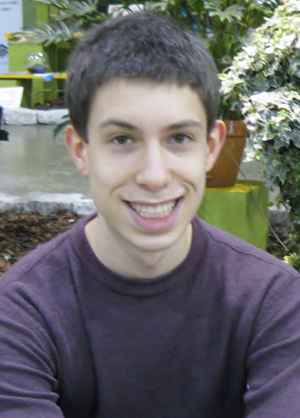 “I don’t think I believe in God.” I was unprepared for the reaction that this innocent remark elicited. The mutual look of shock and horror that fell across my parents’ faces was almost comical. I may as well have told them that I was going to run away from home, which at that point was not looking like such a bad option.
“I don’t think I believe in God.” I was unprepared for the reaction that this innocent remark elicited. The mutual look of shock and horror that fell across my parents’ faces was almost comical. I may as well have told them that I was going to run away from home, which at that point was not looking like such a bad option.
At the age of 10, I was unaware of the negative connotation that atheism had in a uniformly Jewish family. I had begun to feel like an outcast because I lacked the religious enthusiasm shared by nearly all of the students at my Hebrew school. I felt ostracized by my own family, which struggled to accept my nonconformist views.
To some people atheism may seem like the easy way out, but I was forced to devote every last ounce of courage and integrity in me to remain an atheist. Only through reason was I able to avoid succumbing to ignorance and faith.
It was not until my senior year of high school that I finally felt a sense of pride for fighting for what I knew to be self-evident.
Groans had emanated throughout the classroom as our U.S. government teacher announced that each of us was to present a speech to the class on a political issue that we felt strongly about. But unlike the rest of the class, I knew that this was the perfect opportunity to express my opinions that, due to reticence, I had kept to myself.
The topic I chose for my speech was the unconstitutionality and immorality of the incorporation of the words “under God” in the Pledge of Allegiance. With this speech, I not only wanted to overcome my apprehension of expressing my opinions regarding religion, but I also hoped that I could inspire my peers to become freethinkers.
The first part of our assignment was to survey the class and find out their opinions about the speech topics we chose. I cannot say that my results were too surprising. Out of 25 students, 23 supported the use of the words “under God” in the pledge. Even my teacher believed that the phrase was constitutional. But I did not let the results of the survey weaken my resolve. In fact, the outcome only further encouraged me to stand up for my beliefs. I worked long and hard on my speech, which I entitled “The Pledge of Faith.”
“Jesse Miller, you’re up next,” my teacher said. Butterflies fluttered in my stomach as I approached the podium in front of the class. I looked up from my speech, which I had memorized, and into the faces of my fellow students. My gaze was met with many indifferent and insipid stares. Undeterred, I recited my speech in as energetic a voice as I could muster.
By the end, it was clear that I had piqued the interest of most of my classmates, who asked questions or posed counterarguments. After an entire class period of discussing my topic, I was filled with a sense of success, knowing that I had spread awareness on an issue that was important to me.
At the end of the day, my teacher approached me. She commented that she was very impressed with the way that I had stood up for my beliefs, even though most of my classmates, herself included, had contrasting opinions. She also admitted that my speech had caused her to rethink her position on the issue.
The fact that I had inspired my teacher to question her own views made me, for the first time, proud to be a freethinker.
Speaking in 1962 about the U.S. mission to the moon, John F. Kennedy said, “We choose to . . . do [these] things not because they are easy, but because they are hard. . .” The quote perfectly encapsulates the ideology that has enabled me to remain a freethinker throughout my life. I am a freethinker not because it is effortless, but because it is demanding. It required courage to recite a speech that few of my fellow classmates agreed with.
But the sense of accomplishment and pride that comes from promoting reason is always worth the hard work.
Jesse Miller, Hurleyville, N.Y., will be a freshman at Cornell University and will pursue a degree in engineering. After the 2010 Haiti earthquake, he set out jars at businesses and raised $3,600 for the relief cause (including the dollarfordollar match by companies supporting the International Rescue Committee). Jesse plays guitar, paints with watercolors and played first singles on his school tennis team. Jess received a $1,000 schlarship from FFRF.

